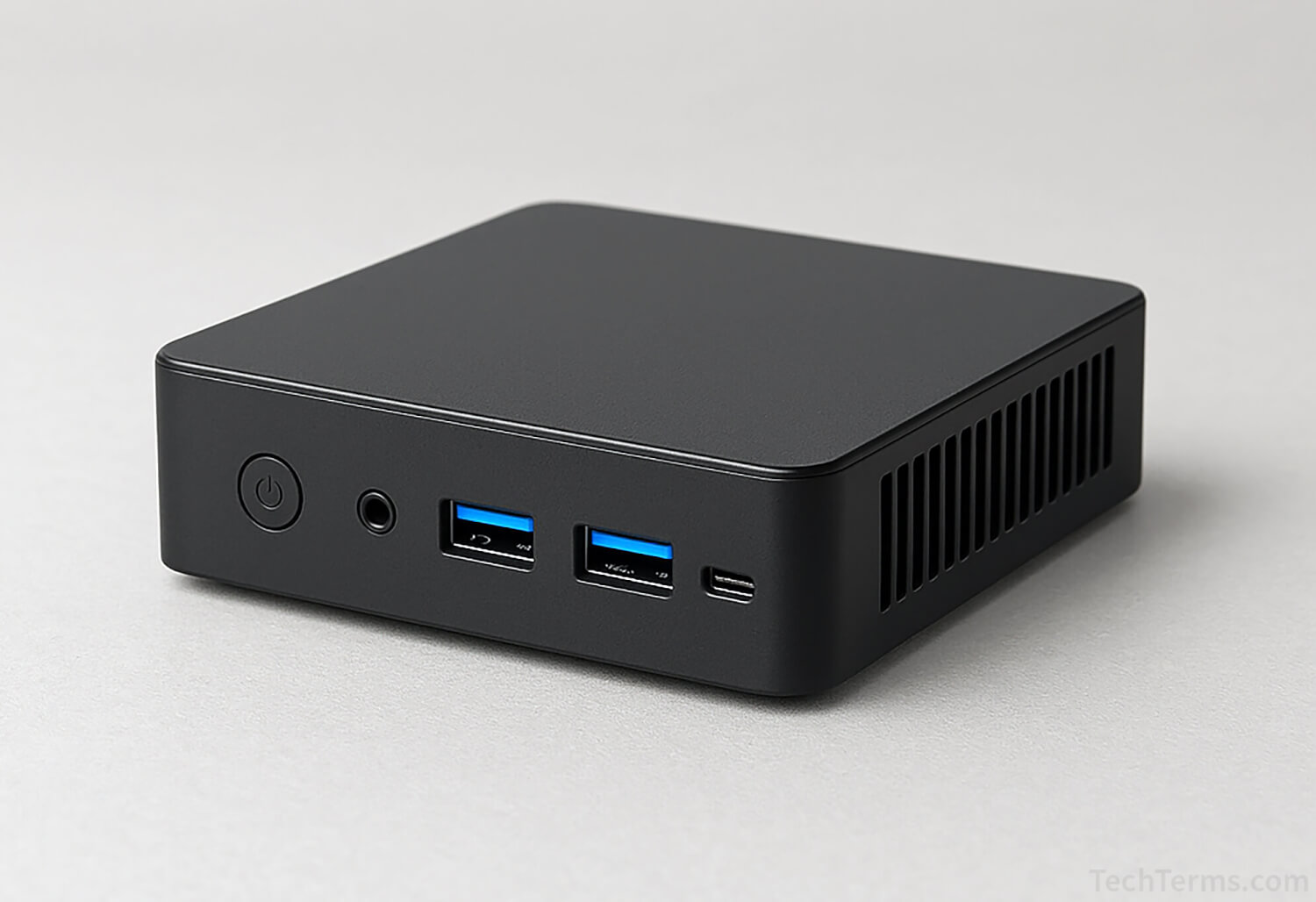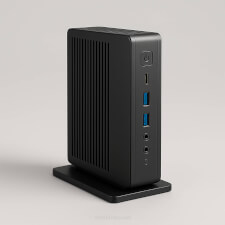Thin Client
A thin client is a lightweight computer designed to rely on a server for most of its processing and storage needs. Unlike traditional PCs, thin clients typically do not have internal storage devices, extensive I/O ports, or other hardware found in full-featured desktop computers. Instead, they connect to a central server over a network to run applications and access data.
A thin client includes only the basic ports needed to function. These typically include USB for input and output devices, HDMI for a display, audio for headphones or speakers, and Ethernet to connect to a network. It may include a Wi-Fi chip for wireless networking as well.
The lightweight design offers several advantages for businesses, schools, and organizations that need to deploy many identical workstations. For instance, students in a computer lab can each use a thin client to run the same software hosted on a server. Since all applications are maintained centrally, it simplifies software updates, security, and troubleshooting. Thin clients are also typically more cost-effective and energy-efficient than standard desktop computers.
NOTE: The term "thin client" is still widely used today, though the are more commonly called network computers. Modern versions may connect to virtual desktop infrastructures (VDI) or cloud-hosted environments rather than a local server.

 Test Your Knowledge
Test Your Knowledge